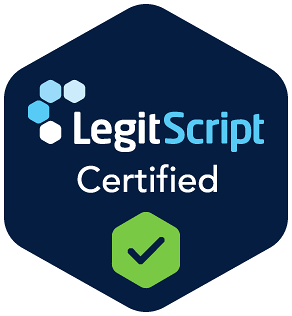.jpg)
Managing Co-Occurring Chronic Pain and Substance Use Disorders
Chronic pain and substance use disorders often go hand in hand, creating a cycle that can be difficult to break. Many individuals suffering from persistent pain turn to prescription medications or other substances for relief, but prolonged use can lead to dependence or addiction. At the same time, those recovering from substance use disorders may struggle with managing their pain without turning to potentially addictive medications.
At Spark Wellness, we understand the complexities of managing both chronic pain and substance use disorders. A holistic, comprehensive approach is essential to breaking the cycle of dependency while still addressing pain in a way that promotes overall well-being and long-term recovery.
The Link Between Chronic Pain and Substance Use
Chronic pain conditions, such as arthritis, back pain, fibromyalgia, and migraines, can be debilitating and impact daily life. Many individuals are prescribed opioid painkillers to manage their symptoms, but long-term use of opioids and other medications can lead to dependence. Over time, the body builds tolerance, requiring higher doses to achieve the same level of relief. This pattern can develop into opioid use disorder or addiction to other substances.
On the other hand, individuals in addiction recovery who suffer from chronic pain often feel trapped between their pain management needs and their commitment to sobriety. The fear of relapse may prevent them from seeking adequate treatment, while unmanaged pain can increase stress, anxiety, and the risk of turning to substances for relief.
Challenges of Managing Chronic Pain in Recovery
For those in recovery, traditional pain management options such as opioids may not be suitable due to the risk of addiction. However, living with unmanaged pain can take a serious toll on mental health, increasing the risk of relapse. Some of the biggest challenges include:
- Limited access to non-addictive pain treatments
- Fear of relapsing while managing chronic pain
- Psychological distress, including anxiety and depression caused by chronic pain
- Social stigma surrounding pain management and addiction recovery
Because of these challenges, an integrated, holistic approach to treatment is often the most effective way to manage both conditions simultaneously.
Holistic Pain Management Strategies for Those in Recovery
A combination of non-addictive treatments and behavioral therapies can help individuals manage chronic pain without compromising their recovery. Some effective strategies include:
Physical Therapy and Movement-Based Healing
Physical therapy, yoga, and low-impact exercises like swimming or walking can reduce pain, improve mobility, and strengthen muscles. These activities also release endorphins, which act as natural pain relievers.
Mindfulness and Stress Reduction Techniques
Practices such as meditation, deep breathing exercises, and progressive muscle relaxation can help regulate pain perception and reduce stress, making it easier to cope with discomfort without turning to substances.
Acupuncture and Chiropractic Care
Alternative treatments such as acupuncture and chiropractic care can help reduce chronic pain by improving circulation, releasing tension, and promoting natural healing. These therapies provide relief without the use of medication.
Cognitive Behavioral Therapy (CBT)
CBT can help individuals reframe negative thought patterns related to pain and develop healthy coping mechanisms. This approach can be particularly helpful in reducing the emotional distress associated with chronic pain.
Non-Opioid Medications and Supplements
For some individuals, non-opioid pain relievers, anti-inflammatory medications, and natural supplements may help manage pain without the risk of addiction. Consulting with a healthcare provider is essential to finding the right balance.
Finding Balance for Long-Term Recovery
Managing chronic pain while maintaining sobriety is a challenge, but it is not impossible. By combining holistic therapies, medical support, and mental health care, individuals can find safe, effective ways to reduce pain and prevent relapse.
At Spark Wellness, we believe in treating the whole person, not just their symptoms. Our team is committed to helping individuals develop sustainable pain management strategies that support both physical and emotional well-being. If you or a loved one is struggling with chronic pain and substance use disorder, know that help is available, and recovery is possible with the right support system.
Recovery articles for you
.jpg)
Understanding the Connection Between Trauma and Substance Use
.jpg)
The Intersection of Technology and Mental Health: Navigating Digital Well-being
.jpg)



